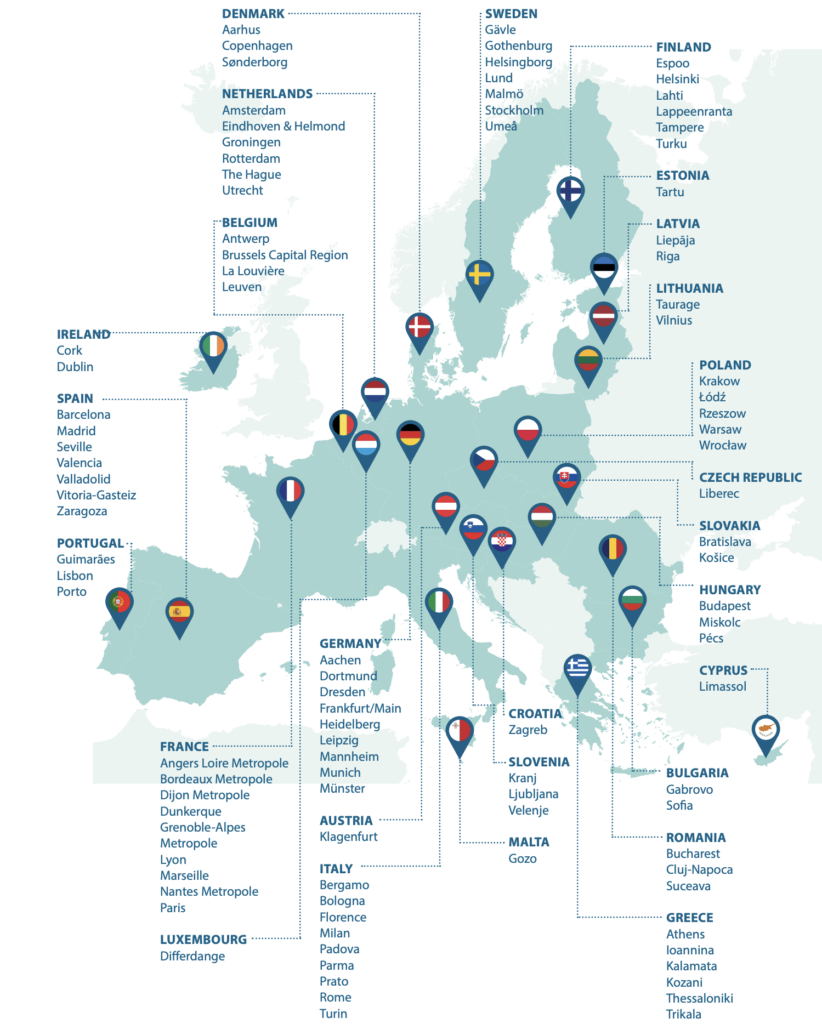The European Commission (EC) has announced 100 cities within the European Union which will work to become climate-neutral and smart cities by 2030, as part of its Cities Mission.
The 100 cities come from all 27 member states, with 12 additional cities from countries associated with Horizon Europe, the EU’s research and innovation programme (2021-2027).
According to the EC, its urban areas are home to 75% of EU citizens, while globally urban areas consume over 65% of the world’s energy, accounting for more than 70% of CO2 emissions. It is therefore important that cities act as experimentation and innovation ecosystems to help all others in their transition to become climate-neutral by 2050, the EC continued.
Ursula von der Leyen, president of the commission, said: “The green transition is making its way all over Europe right now. But there’s always a need for trailblazers, who set themselves even higher goals. These cities are showing us the way to a healthier future. We will support them on this! Let’s begin the work today.”
The Cities Mission will receive €360m (£308m) of Horizon Europe funding covering the period 2022-23, to start working towards climate neutrality by 2030. The research projects will cover clean mobility, energy efficiency and green urban planning, and offer the possibility to build joint initiatives and ramp up collaborations with other EU programmes.
Benefits for cities include tailor-made advice and assistance from a dedicated Mission Platform run by NetZeroCities, additional funding and financing opportunities and the possibility to join large innovation actions and pilot projects. The mission also provides networking opportunities, exchange of best practices between cities and support to engage citizens in the mission.
The EC has invited the 100 selected cities to develop Climate City Contracts, which will include an overall plan for climate neutrality across all sectors such as energy, buildings, waste management and transport, together with related investment plans. This process will involve citizens, research organisations and the private sector.

Furthermore, as 337 cities showed interest to join the mission, the EC is also putting in place support for cities that were not selected.
Virginijus Sinkevičius, commissioner for environment, oceans and fisheries, added: “The Mission for climate-neutral and smart cities will help us deliver our environmental commitments on zero pollution, biodiversity and circular economy. Many of the selected cities have already shown their environmental credentials in our Green Capital, Green Leaf and Green City Accord initiatives by tackling air, noise and waste issues.
“These cities’ ambitions for climate and innovation, as well as the Mission’s wider research funding, will help make urban living greener, cleaner and healthier for European citizens.”




